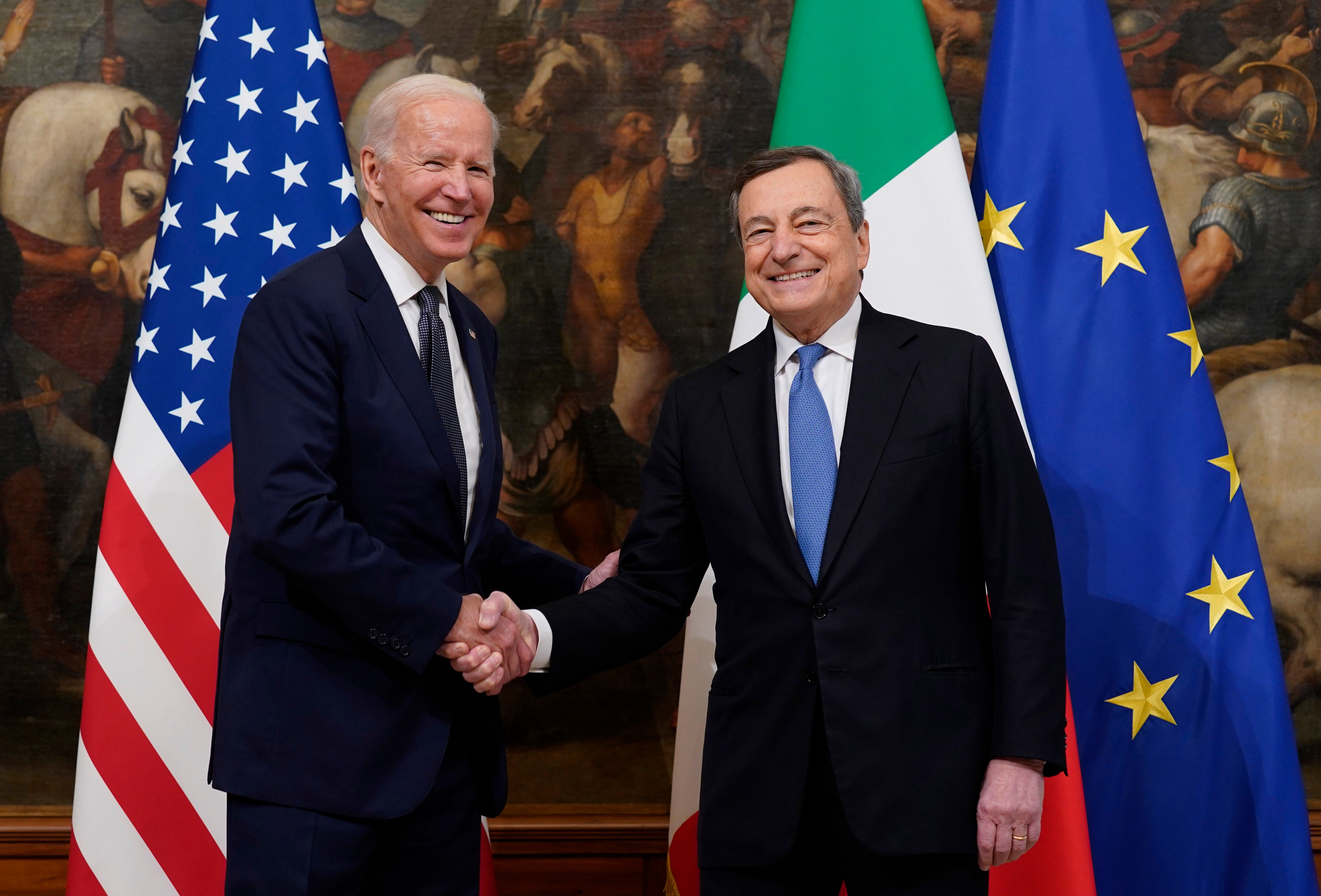US, Italy united on Ukraine, with slightly different tones
Italian Premier Mario Draghi meets with U.S. President Biden this week in Washington as Europe faces another “whatever it takes” moment, with war raging on its eastern flank in Ukraine

Italian Premier Mario Draghi meets with U.S. President Joe Biden this week in Washington as Europe faces another “whatever it takes” moment with Russia's war in Ukraine raging on its eastern flank.
Both Rome and Washington will emphasize their historic friendship and shared desire to help Ukraine defend itself from Russia’s two-month-old invasion when the leaders meet on Tuesday. Energy, climate change and promoting global economic prosperity also are on the agenda.
Still, there are differences in tone over the war, and public sentiment in Italy against sending arms to Ukraine is growing.
Draghi is pushing for even a limited truce to allow talks to resume, mindful also of the impact on Italy should the war spill over Ukraine’s borders. Statements by Biden and his emissaries have been more aggressive, suggesting both regime change and the goal of weakening Russia.
These differences reflect not only Italy's geographic closeness to the fighting, but also its historic political and economic ties with Russia. Italy gets 40% of its natural gas from Russia, and economic trade last year amounted to 20 billion euros.
“There are two currents regarding Russia," Sergio Romano, a Cold War-era Italian ambassador to Moscow, told The Associated Press. “There is the position of the countries that see in the war in Ukraine the possibility, or the hope, of the diminishment of Russian power. I think this current is strong in the U.S.
“I don’t think this is the position of the Italian government, which in the past has had cordial and positive relations with Russia."
Draghi, a former central banker skilled at measuring his words, is one of the only European Union leaders to visit Washington since the war broke out, and can be expected to represent not only Italy’s perspective, but also that of Europe. His “whatever it takes" posture as the European Central Bank chief famously saved the euro during the currency bloc’s crisis a decade ago.
Arming Ukraine has become a political issue in Italy, with a growing public opposition to sending Italian weaponry out of fear of provoking a wider conflict spilling over into neighboring EU and NATO member states.
A key government party, the 5-Star Movement, is insisting that only defensive, short-range weapons be shipped, not any with offensive capabilities, while right-wing leader Matteo Salvini, a former interior minister, is against more arm shipments to Ukraine.
Public sentiment against sending arms to Ukraine has grown to around half, according to Renato Mannheimer, a sociologist at the Eumetra social and market research agency. Some of that sentiment is rooted in pacifism, and some is related to fears of igniting a wider war, including fears of a nuclear escalation, he said.
Italians over 40 have palpable memories of their close geographic location to Ukraine. Shortly after the Chernobyl nuclear disaster in 1986, nuclear contamination reached Italy and Italians were warned not to eat salad or drink milk for weeks.
Italy already has invoked secrecy over its military support out of security concerns. But Draghi can also point to parliament’s overwhelming support to aid Ukraine last month to play down any friction within his broad-based coalition.
“Maybe the message that Draghi will bring to Biden in these hours is: ‘We are on the side of the Americans, but let’s not make this a war of good against evil, of light against darkness,’” said Alessia De Luca, a political analyst at the ISPI think tank in Milan.
“This is a risk because Americans have this binary way of seeing things. For us Europeans, the consequences of the war spilling over are dramatic.”
___
Follow the AP’s coverage of the war at https://apnews.com/hub/russia-ukraine
Bookmark popover
Removed from bookmarks